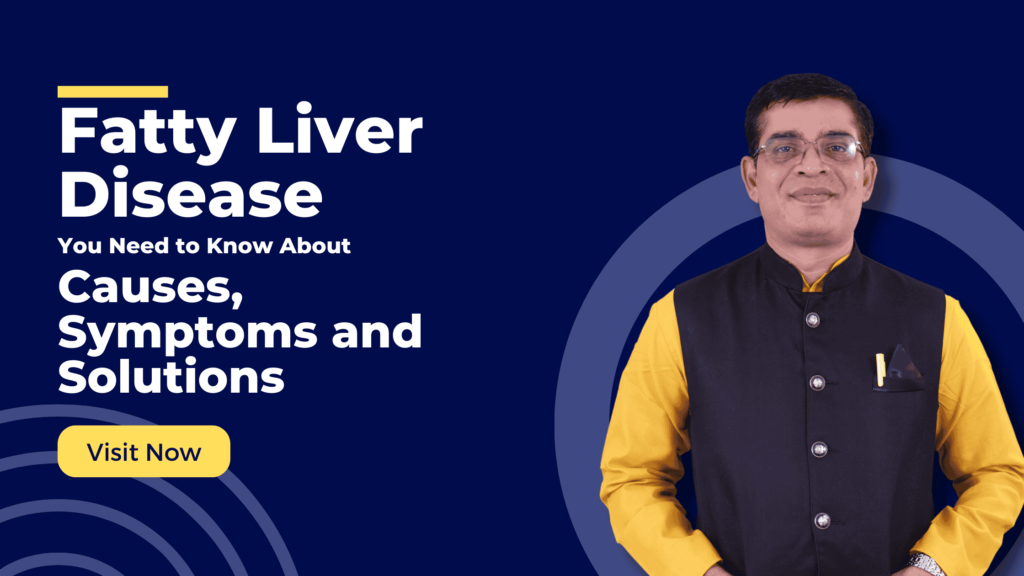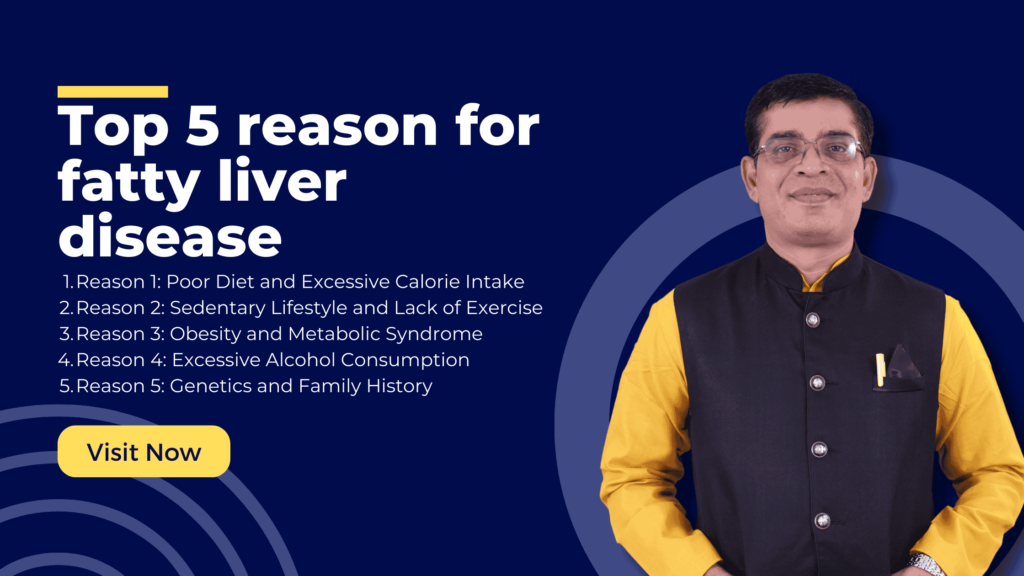Fatty liver disease is becoming increasingly common worldwide, affecting millions of people across all age groups. This silent condition, characterized by the accumulation of fat in liver cells, can lead to serious health complications if left unchecked.
In this blog post, we’ll explore the causes, symptoms, prevention strategies, and treatment options for fatty liver disease, empowering you with the knowledge to take control of your liver health.
Table of Contents
What is Fatty Liver Disease?

Fatty liver disease occurs when excess fat builds up in liver cells. There are two main types:
- Nonalcoholic Fatty Liver Disease (NAFLD): This type is not related to alcohol consumption and is the most common form of fatty liver disease.
- Alcoholic Fatty Liver Disease: This type is caused by excessive alcohol consumption.
Both types can progress to more severe forms, including inflammation (steatohepatitis) and scarring (cirrhosis), which can lead to liver failure if not addressed.
Causes of Fatty Liver
Understanding the causes of fatty liver is crucial for prevention and management. Some common factors include:
- Obesity: Excess body weight, especially around the waist, is a significant risk factor for fatty liver disease.
- Insulin Resistance: This condition, often associated with type 2 diabetes, can lead to fat accumulation in the liver.
- High Blood Sugar: Elevated blood sugar levels can contribute to fat buildup in liver cells.
- High Cholesterol and Triglycerides: Abnormal lipid levels in the blood can increase the risk of fatty liver.
- Excessive Alcohol Consumption: Regular, heavy drinking can lead to alcoholic fatty liver disease.
- Poor Diet: A diet high in processed foods, sugars, and unhealthy fats can contribute to fatty liver development.
- Sedentary Lifestyle: Lack of physical activity is associated with an increased risk of fatty liver.
- Certain Medications: Some medications, such as corticosteroids and tamoxifen, can increase the risk of fatty liver.
- Genetic Factors: Some people may be genetically predisposed to developing fatty liver disease.
Symptoms of Fatty Liver
Fatty liver disease often doesn’t cause noticeable symptoms in its early stages, which is why it’s sometimes called a “silent” disease. However, as the condition progresses, some people may experience:
- Fatigue and weakness
- Unexplained weight loss or gain
- Pain or discomfort in the upper right abdomen
- Enlarged liver (hepatomegaly)
- Elevated liver enzymes in blood tests
In more advanced stages, symptoms may include:
- Jaundice (yellowing of the skin and eyes)
- Swelling in the legs and abdomen
- Confusion or difficulty concentrating
- Bruising easily
It’s important to note that many people with fatty liver disease may not experience any symptoms at all, which is why regular check-ups and liver function tests are crucial, especially for those at higher risk.
Prevention Strategies
Preventing fatty liver disease involves making lifestyle changes and addressing underlying risk factors. Here are some effective strategies:
- Maintain a Healthy Weight: If you’re overweight or obese, losing even 5-10% of your body weight can significantly reduce liver fat.
- Eat a Balanced Diet: Focus on:
- Whole grains
- Fruits and vegetables
- Lean proteins
- Healthy fats (like those found in avocados, nuts, and olive oil)
- Limit processed foods, sugary drinks, and saturated fats
- Exercise Regularly: Aim for at least 150 minutes of moderate-intensity exercise or 75 minutes of vigorous-intensity exercise per week.
- Limit Alcohol Consumption: If you drink alcohol, do so in moderation. For some people, especially those with existing liver issues, it may be best to avoid alcohol entirely.
- Manage Other Health Conditions: Control diabetes, high cholesterol, and other metabolic disorders through medication and lifestyle changes as recommended by your healthcare provider.
- Stay Hydrated: Drink plenty of water throughout the day to support liver function.
- Avoid Unnecessary Medications: Only take medications as prescribed by your doctor, and inform them of all supplements you’re taking.
- Get Regular Check-ups: Schedule regular health screenings to monitor your liver health and catch any issues early.
Treatment Options
If you’ve been diagnosed with fatty liver disease, your treatment plan will depend on the underlying cause and the severity of your condition. Here are some common approaches:
- Lifestyle Modifications:
- Weight loss through diet and exercise is often the first-line treatment for NAFLD.
- Reducing alcohol consumption or abstaining completely for alcoholic fatty liver disease.
- Medications:
- While there are no FDA-approved medications specifically for fatty liver disease, your doctor may prescribe medications to help manage related conditions like diabetes, high cholesterol, or obesity.
- Vitamin E supplements may be recommended for some patients with NASH (nonalcoholic steatohepatitis).
- Management of Related Conditions:
- Treating conditions like diabetes, high blood pressure, and high cholesterol can help improve liver health.
- Liver Transplant:
- In severe cases where fatty liver disease has progressed to cirrhosis or liver failure, a liver transplant may be necessary.
- Emerging Therapies:
- Research is ongoing into new treatments for fatty liver disease. Some promising areas include:
- GLP-1 receptor agonists
- PPAR agonists
- FXR agonists
- Research is ongoing into new treatments for fatty liver disease. Some promising areas include:
It’s crucial to work closely with your healthcare provider to develop a personalized treatment plan that addresses your specific needs and risk factors.
Conclusion
Understanding fatty liver disease is the first step in preventing and managing this increasingly common condition. By recognizing the causes and symptoms, implementing prevention strategies, and exploring treatment options when necessary, you can take control of your liver health and overall well-being.
Remember, fatty liver disease is often reversible in its early stages. With the right lifestyle changes and medical care, many people can improve their liver health and prevent the progression of the disease. If you’re concerned about your liver health or have risk factors for fatty liver disease, don’t hesitate to speak with your healthcare provider.
Take action today to protect your liver – your body’s remarkable filtration and detoxification system. By prioritizing your liver health, you’re investing in a healthier, more vibrant future.

